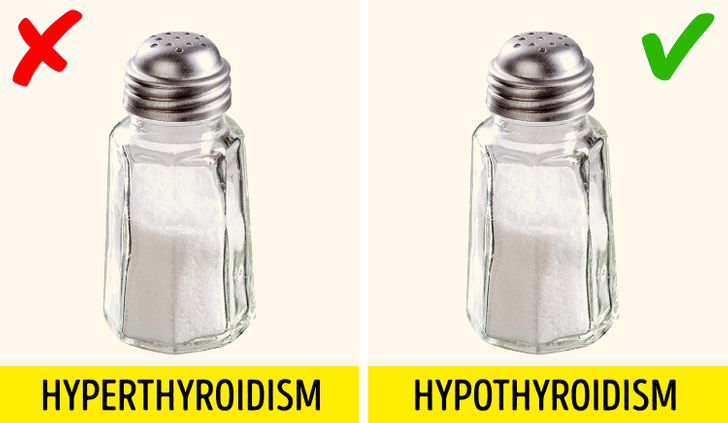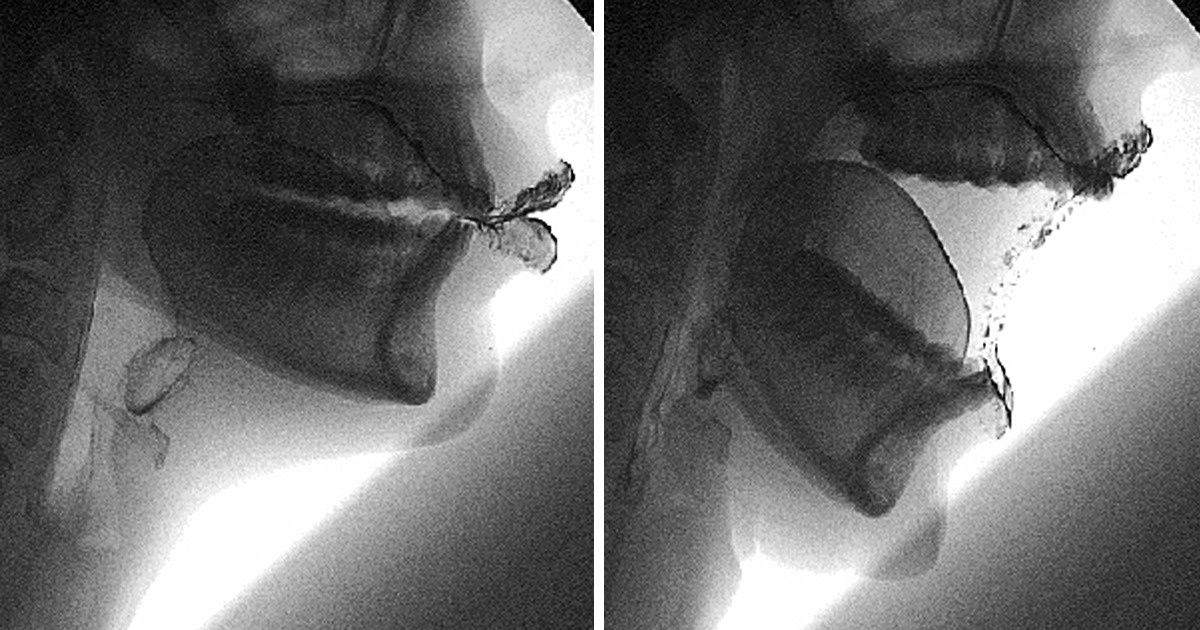The thyroid gland is a small but mighty organ that plays a crucial role in regulating your body’s metabolism, energy levels, and overall hormonal balance. When your thyroid doesn’t work properly, it can manifest in a range of symptoms that often go unnoticed until they significantly impact your quality of life. In this comprehensive guide, we’ll explore 7 signs that explain your thyroid doesn’t work properly, including symptoms of both hypothyroidism and hyperthyroidism, and provide practical lifestyle tips to manage thyroid malfunctioning.
Drawing on expert insights from reputable sources like the Mayo Clinic, Harvard Health Publishing, and the National Institutes of Health (NIH), this article will help you recognize the signs of thyroid disorders early, enabling you to take proactive steps towards effective treatment and management.
Understanding Thyroid Disorders
Your thyroid gland produces hormones that are essential for regulating metabolism, heart rate, and body temperature. When the thyroid is underactive (hypothyroidism) or overactive (hyperthyroidism), the balance of these hormones is disrupted, leading to a variety of symptoms. Recognizing these early signs is crucial for proper diagnosis and treatment.
Signs of Hypothyroidism in Thyroid Disorders
Hypothyroidism is a condition where the thyroid gland does not produce enough hormones. This interactivity can slow down various bodily functions and cause several noticeable symptoms.
Hypothyroidism: The Core Thyroid Disorder
Hypothyroidism is often the root cause behind many of the symptoms we experience. When the thyroid gland underperforms, it can lead to an overall decline in energy, mood changes, and weight gain. A sluggish thyroid can affect every system in your body, so early detection and treatment are key. For more detailed information on hypothyroidism, consider visiting the Mayo Clinic’s hypothyroidism overview.
Lethargy: Persistent Fatigue and Low Energy
One of the most common symptoms of hypothyroidism is lethargy. If you constantly feel tired, even after a full night’s sleep, it could be a sign that your thyroid is not producing enough hormones. This persistent fatigue isn’t just normal tiredness; it’s an energy deficit that affects daily activities, work productivity, and overall quality of life. Check out Harvard Health’s article on fatigue for additional insights.
A Change in Your Voice: Hoarseness and Voice Alterations

Changes in your voice, such as hoarseness or a deeper tone, can also signal thyroid issues. The thyroid gland is located in the neck, and its malfunction can affect the vocal cords and surrounding tissues. If you notice that your voice is becoming unusually husky or you experience frequent throat discomfort, it might be time to consult a healthcare professional. Voice changes are a subtle yet significant symptom that should not be ignored.
Thickened Skin and Thinning Eyebrows: Visible Signs of Hormonal Imbalance
Your skin and hair can also reflect your internal hormonal status. Thickened skin or the presence of a dry, coarse texture can be a sign of hypothyroidism. Additionally, thinning eyebrows—especially the outer third—are a well-known clinical sign. These physical changes occur because thyroid hormones influence the metabolism of skin cells and hair follicles. Dermatologists often highlight these symptoms as indicators of hormonal imbalances. For further reading, the American Thyroid Association offers detailed information on skin and hair changes linked to thyroid disorders.
Joint and Muscle Pain: Unexplained Discomfort

Another key sign of an underactive thyroid is joint and muscle pain. This discomfort can range from mild aches to severe pain that limits mobility. Hypothyroidism can cause inflammation in the muscles and joints, leading to stiffness and pain. If you experience ongoing musculoskeletal pain without a clear cause, it might be related to thyroid dysfunction. Research from NIH’s National Library of Medicine has established links between thyroid hormone levels and musculoskeletal health, emphasizing the importance of thyroid function in maintaining joint mobility.
Signs of Hyperthyroidism: Recognizing Overactive Thyroid Symptoms
While hypothyroidism indicates an underactive thyroid, hyperthyroidism is the opposite—a condition where the thyroid produces too much hormone. This excess hormone can speed up bodily functions, leading to a different set of symptoms.
An Increase in Appetite: Overstimulation of Metabolic Processes

A sudden increase in appetite, particularly when accompanied by unexplained weight loss, may indicate hyperthyroidism. The body’s metabolism is running at an accelerated rate, burning calories faster than they are consumed. This hypermetabolic state often leads individuals to feel hungry more frequently. However, despite the increased food intake, weight loss or difficulty gaining weight can occur. This paradoxical symptom is a hallmark of hyperthyroidism. For more in-depth information, refer to Harvard Health’s guide on hyperthyroidism.
Hand Tremors: Uncontrollable Shaking and Nervous System Impact

Hand tremors, or involuntary shaking, are another common sign of an overactive thyroid. This symptom is particularly concerning because it affects fine motor skills and can interfere with daily tasks such as writing or using utensils. The tremors are caused by the overstimulation of the nervous system due to excess thyroid hormones. If you experience consistent hand tremors, it is important to get your thyroid levels checked. The Mayo Clinic provides comprehensive resources on hyperthyroidism symptoms and treatments, including the management of tremors.
Lifestyle Tips to Manage Thyroid Malfunctioning

Managing thyroid disorders involves more than just medical treatment; lifestyle changes can play a significant role in alleviating symptoms and supporting overall thyroid health. Below are some effective strategies to help manage thyroid malfunctioning.
Optimizing Your Diet for Thyroid Health
Nutrition is a cornerstone of thyroid health. Incorporate a diet rich in iodine, selenium, and zinc, which are essential for thyroid hormone production and regulation. Foods such as seaweed, Brazil nuts, and lean proteins can support thyroid function. Avoid excessive consumption of goitrogenic foods (like raw cruciferous vegetables) that may interfere with thyroid hormone synthesis, especially if you have an existing thyroid condition. For tailored dietary advice, the American Thyroid Association offers comprehensive guidelines.
Incorporating Regular Exercise
Regular physical activity helps boost metabolism, reduce stress, and improve overall energy levels—factors that are especially important for individuals with thyroid disorders. Whether it’s aerobic exercises, yoga, or strength training, incorporating a balanced workout routine can improve your hormonal balance and alleviate some of the fatigue and joint pain associated with thyroid issues. For expert advice on exercise and thyroid health, check out resources from Harvard Health.
Managing Stress and Mental Health
Chronic stress can exacerbate thyroid problems by disrupting hormone balance. Practices such as mindfulness meditation, deep breathing exercises, and regular physical activity can help lower stress levels. Adequate sleep is also crucial for hormonal regulation. If you find it challenging to manage stress, consider seeking support from a mental health professional or exploring stress management programs available through reputable sources like the National Institutes of Health.
Avoiding Environmental Toxins
Certain environmental toxins, such as heavy metals and chemicals, can interfere with thyroid function. Reduce exposure by using natural cleaning products, drinking filtered water, and avoiding processed foods that may contain harmful additives. Maintaining a toxin-free environment can significantly impact your thyroid health and overall well-being.
Regular Medical Checkups and Thyroid Monitoring
Regular monitoring of your thyroid hormone levels through blood tests is essential for managing thyroid disorders. Early detection and consistent monitoring allow for timely adjustments in medication and lifestyle changes. If you experience any symptoms associated with thyroid malfunction, it is important to consult your healthcare provider immediately. Trusted institutions like the Mayo Clinic and NIH emphasize the importance of routine checkups for early diagnosis and effective management.
Considering Supplementation When Necessary
In some cases, dietary supplements may be necessary to support thyroid function. Supplements containing iodine, selenium, or vitamin D can help fill nutritional gaps. However, it’s important to consult with a healthcare professional before starting any supplementation, as excessive intake of certain nutrients can adversely affect thyroid health. The American Thyroid Association provides guidelines on safe supplementation practices for those with thyroid disorders.
Final Thoughts: Embrace Proactive Thyroid Health Management
Your thyroid plays a vital role in maintaining your overall health, affecting everything from your metabolism to your mood and energy levels. Recognizing the signs that explain your thyroid doesn’t work properly—whether it’s the subtle symptoms of hypothyroidism like lethargy, voice changes, and thinning eyebrows, or the more overt signs of hyperthyroidism such as an increased appetite and hand tremors—is essential for early diagnosis and effective treatment.
By making informed lifestyle choices, such as optimizing your diet, incorporating regular exercise, managing stress, and avoiding environmental toxins, you can significantly improve your thyroid function and overall quality of life. Remember, regular monitoring and consultation with your healthcare provider are critical steps in ensuring your thyroid stays on track.
For further information on thyroid disorders and management strategies, visit trusted sources like the Mayo Clinic, Harvard Health Publishing, and the American Thyroid Association. These resources offer in-depth insights and expert advice to help you navigate the complexities of thyroid health.
Embrace proactive thyroid management today, and take the first step towards a healthier, more balanced life. Whether you’re experiencing subtle signs of hormonal imbalance or more pronounced symptoms, understanding your thyroid’s role in your body is key to unlocking better overall health. Stay informed, make positive lifestyle changes, and never hesitate to seek professional guidance if you suspect your thyroid isn’t functioning properly.
In conclusion, the 7 signs outlined in this article serve as critical indicators of thyroid malfunction. By paying close attention to these symptoms—ranging from the common signs of hypothyroidism such as lethargy, voice changes, thickened skin, thinning eyebrows, and joint pain, to the symptoms of hyperthyroidism like increased appetite and hand tremors—you empower yourself to take control of your health. With the right combination of medical support and lifestyle modifications, managing thyroid disorders can lead to improved energy levels, better mood regulation, and enhanced overall well-being.
Take charge of your thyroid health now and pave the way for a healthier future.









